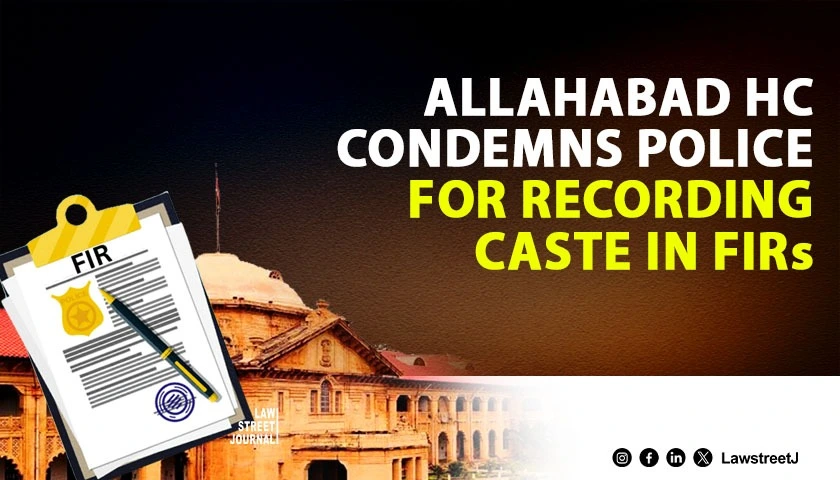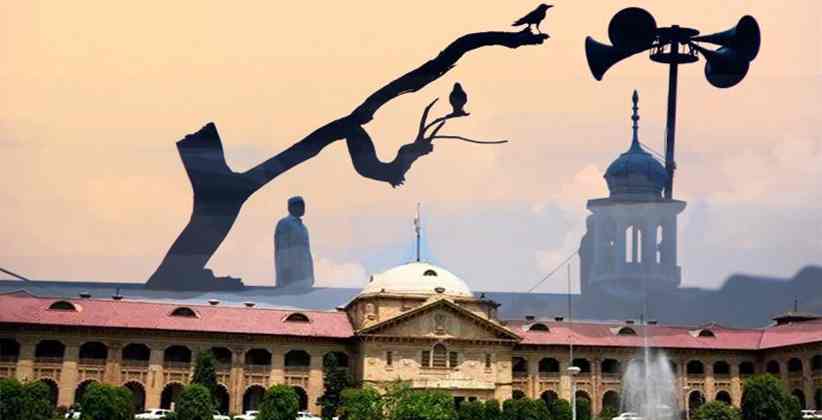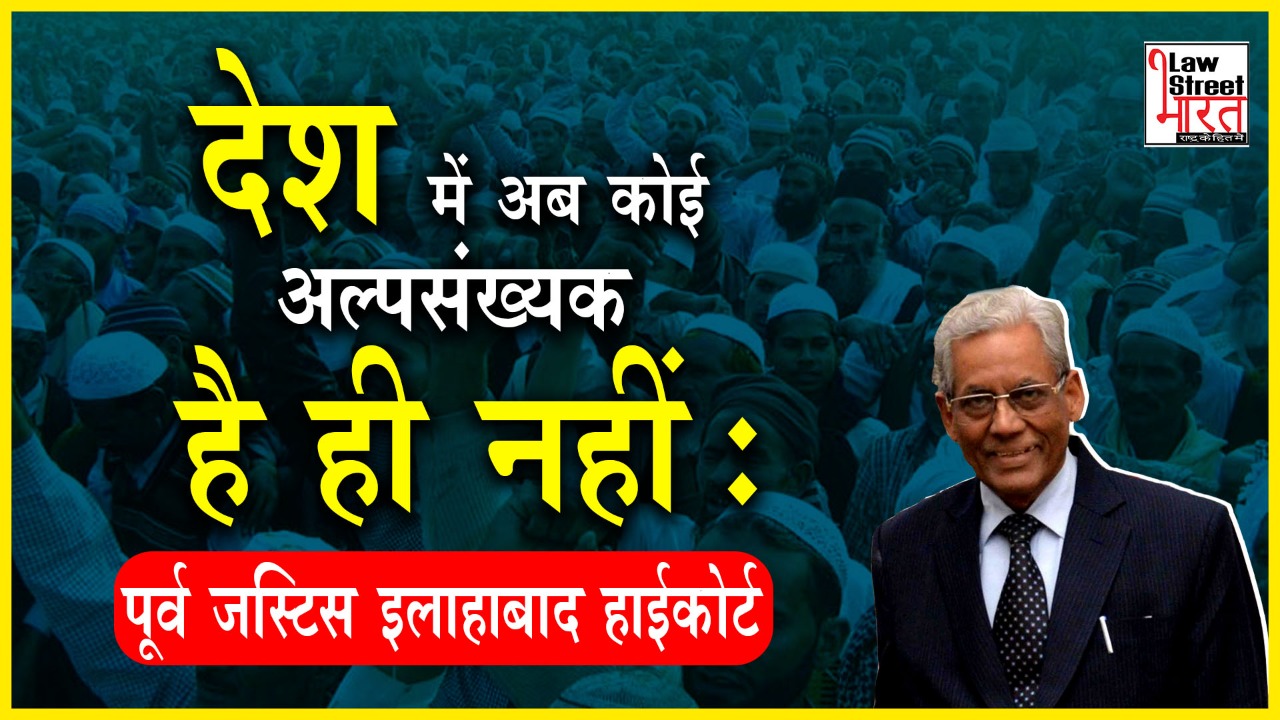Prayagraj: The Allahabad High Court has delivered a scathing critique of police practices that record the caste of accused persons in criminal cases, calling such conduct “identity profiling” that violates constitutional morality and fundamental rights, while refusing to quash proceedings against an alleged liquor smuggling kingpin.
Justice Vinod Diwakar delivered a comprehensive judgment on September 16, 2025, in Application u/s 482 No. 31545 of 2024 (Praveen Chetri vs. State of U.P. and Another), addressing both the specific criminal case and the broader constitutional issues surrounding caste-based identity recording by law enforcement.
The case originated from a routine vehicle check on April 29, 2023, at Jaunai Farm police post in Etawah district, where police intercepted two vehicles carrying illegal liquor. The FIR and seizure memo recorded the caste of the accused as “Mali,” “Pahadi Rajput,” “Thakur,” “Punjabi Parashar,” and “Brahmin,” which prompted the court to examine this practice.
Praveen Chetri, identified as the alleged gang leader in the liquor smuggling operation, sought quashing of criminal proceedings under Sections 420, 467, 468, 471 IPC and Sections 60/63 of the Excise Act. He claimed he was merely seeking transport after attending a relative’s funeral and was falsely implicated.
However, Justice Diwakar’s attention was drawn to the systematic recording of caste identities by police. The court directed the Director General of Police to file a personal affidavit justifying this practice, leading to a broader constitutional examination.
The DGP’s response attempted to justify caste recording on three grounds: avoiding confusion in identification, compliance with centralized formats, and claiming non-discrimination. However, Justice Diwakar systematically dismantled each argument.
“The police’s stand on the identification of the accused based on caste is a legal fallacy. In the first quarter of the 21st century, the police still rely on caste as a means of identification. It’s unfortunate,” the court observed, noting the availability of modern identification tools including body cameras, fingerprints, Aadhaar cards, and detailed physical descriptions already mandated in official formats.
The court emphasized that recording caste “serves no lawful or legitimate purpose” and constitutes “identity profiling, not objective investigation.” Justice Diwakar noted that such practices “reinforce prejudice, corrupt public opinion, contaminate judicial thinking, violate fundamental rights, and undermine constitutional morality.”
Drawing extensively from constitutional principles and Supreme Court precedents, the judgment referenced Dr. B.R. Ambedkar’s vision of a casteless society. The court quoted Ambedkar’s warning that “castes are anti-national” because “they bring about separation in social life” and “generate jealousy and antipathy between caste and caste.”
The judgment cited recent Supreme Court directions in State of Rajasthan v. Gautam s/o Mohanlal, where the apex court stated that “an accused has no caste or religion when the Court deals with his case,” and in Shama Sharma v. Kishan Kumar, which prohibited mentioning caste/religion in legal proceedings.
Justice Diwakar conducted a detailed analysis of police formats, finding that while some forms contain fields for caste information in specific contexts (particularly for victims in SC/ST Act cases), the FIR format contains “no para wherein it is mandatory for the police to mention the caste and religion of accused and complainant.”
The court’s observations extended to broader social phenomena, including the rise of caste identifiers on vehicles and social media. “The resurgence of caste identifiers in public and digital spaces is not the beginning of a cultural phenomenon — it is a coded assertion of social power that contradicts India’s constitutional values,” the judgment stated.
Addressing the psychological dimensions of caste consciousness, Justice Diwakar observed that “caste-based notions of superiority, especially among historically privileged castes, persist in the collective consciousness despite constitutional guarantees of equality and dignity.”
The judgment included sharp criticism of the DGP’s response: “The Court is not impressed with the justification offered by the Director General of Police. In the Court’s view, the DGP’s justification reflected inadequate sensitivity to India’s complex social realities and the demands of professional policing.”
The court issued comprehensive directions to the Uttar Pradesh government, mandating deletion of caste-related columns from all police formats while adding mother’s name alongside father’s/husband’s name for better identification. The judgment also ordered the removal of caste references from police station notice boards and from signboards that declared geographical areas as caste territories.
The court further provided recommendations to central government ministries, suggesting amendments to Central Motor Vehicle Rules to ban caste-based slogans on vehicles and strengthening IT rules to address caste-glorifying content on social media platforms.
Despite the constitutional critique, Justice Diwakar refused to quash the criminal proceedings against Chetri, finding prima facie evidence of his involvement in liquor smuggling. The court noted recovery of 70 bottles of premium whisky, fake number plates, and witness statements identifying him as the gang leader.
“Considering the nature of illegal smuggling of liquor across state borders for financial gain and applying the principles laid down in Bhajan Lal, a prima facie case is made out against the applicant,” the court concluded.
Prashant Sharma and Surendra Pratap Singh appeared for the applicant, while Amrit Raj Chaurasiya represented the state.
Case Title: Praveen Chetri vs. State of U.P. and Another




!["No Loudspeakers For Azan, No Fundamental Right To Create Noise," Says Allahabad HC To Two Mosques [Read Judgment]](/secure/uploads/2020/01/lj_4995_Allahabad_HC_AZAN.jpg)








